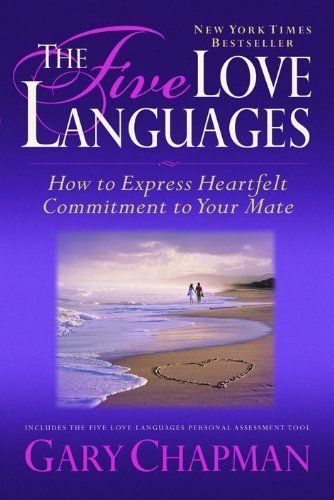
The 5 Love Languages The Secret to Love that Lasts
- Over 11 million copies sold - #1 New York Times Bestseller for 8 years running - Now celebrating its 25th anniversary Simple ideas, lasting love Falling in love is easy. Staying in love—that’s the challenge. How can you keep your relationship fresh and growing amid the demands, conflicts, and just plain boredom of everyday life? In the #1 New York Times bestseller The 5 Love Languages, you’ll discover the secret that has transformed millions of relationships worldwide. Whether your relationship is flourishing or failing, Dr. Gary Chapman’s proven approach to showing and receiving love will help you experience deeper and richer levels of intimacy with your partner—starting today. The 5 Love Languages is as practical as it is insightful. Updated to reflect the complexities of relationships today, this new edition reveals intrinsic truths and applies relevant, actionable wisdom in ways that work. Includes the Couple's Personal Profile assessment so you can discover your love language and that of your loved one.
Reviews
Melissa Palmer@melissapalmer404
Briar's Reviews@briarsreviews
Kehinde Adeleke@adeleke5140
nanafark@nanafark
Róbert Istók@robertistok
Alex Ker@alexker
Ashley Janssen@aninterestingidea
Yesenia Vargas@yeseniavargas
Sarah Ryan@sarahryan
Andrea Alvarado@libavius
Caroline Lewicki@clewicki20
Milo Jean@milojean
Bryan Maniotakis@bryanmanio
Erin Noel@erinhnoel
Kimi @kimber
Andrea McGuffey@missmarple
Chii@chi
Janet Doré@vistacanas
hailey williams @yetispaghettis
Karin@karin7
Sofia @soffigoff
Dama Aleman@mrsaleman
Britney Venus @bree_v08
Chana@chanasoll
Highlights
behringlukas@behringlukas
Page 22
nanafark@nanafark
nanafark@nanafark
nanafark@nanafark